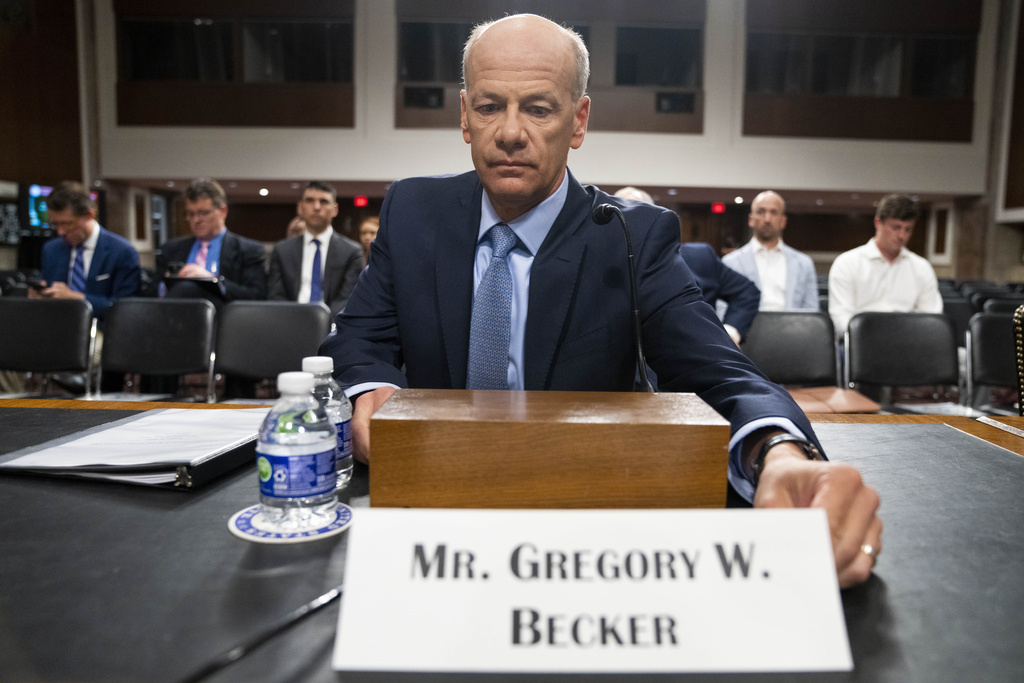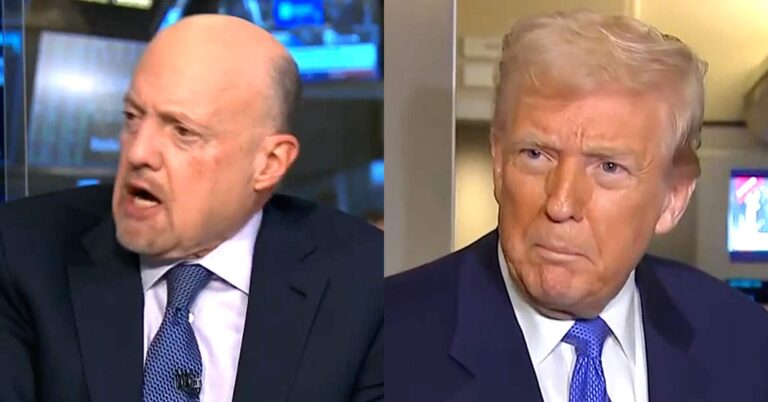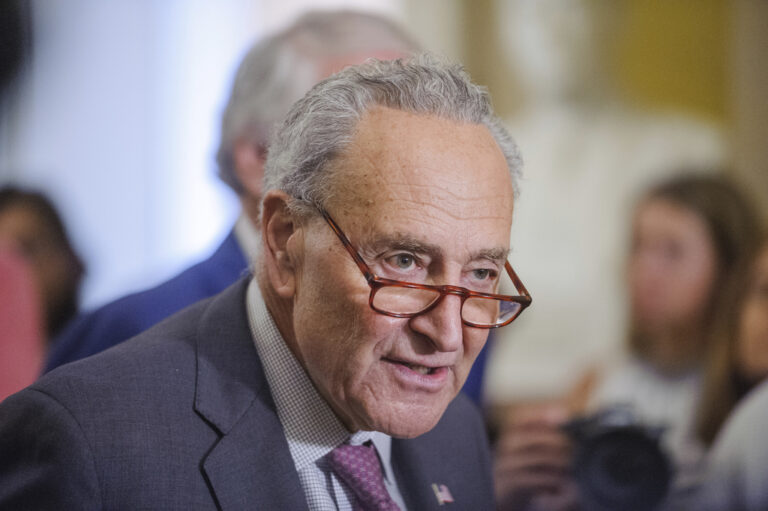Executives from two of three banks that recently failed appeared in front of the Senate Banking Committee on Tuesday to respond to questions about why their banks went under and what regulators could have done to avoid the calamities.
Along with questions about how these banks failed, senators used the hearing to also address executive pay and whether senior executives in the U.S. are being rewarded more for short-term gains — like rising stock prices — than for ensuring their companies’ long-term health.
Executives at Silicon Valley Bank, Signature Bank and First Republic Bank were paid millions of dollars over their tenures up until their banks failed, the bulk of the compensation coming in the form company stock. That stock is now largely worthless but the CEOs still pocketed millions from the planned sales of their shares before the banks’ collapse.
Sen. Sherrod Brown, the Democratic chair of the Senate Banking Committee, took aim at executive compensation to open the hearing.
“You were paying out bonuses until literally hours before regulators seized your assets. To people in Ohio and around the country, this feels sickeningly familiar,” Brown said. “To most Americans, a lack of Wall Street accountability tracks with their entire experience with our economy. Workers face consequences; executives ride off into the sunset.”
Silicon Valley Bank’s former CEO Greg Becker received compensation valued at roughly $9.9 million in 2022, and also sold stock in the company only a few weeks before it failed. Joseph DePaolo, CEO of Signature Bank, also sold stock in the company in the years leading up to its collapse.
DePaolo did not appear in front of the Senate on Tuesday due to health concerns; instead Signature’s co-founder and the bank’s president agreed to testify.
The anger over CEO pay echoes that of roughly 15 years ago, when the 2008 financial crisis led to taxpayer-funded bailouts of major banks. The CEOs and high-level bankers still received millions in pay and bonuses, most notably at nearly failed insurance conglomerate American International Group.
“The recent bank failures prove yet again that banker compensation is at the core of causing banks to take too much risk, act irresponsibly if not recklessly, and blow themselves up,” said Dennis Kelleher, co-founder of Better Markets, which was founded after the Great Recession focused on financial industry reform.
Clawing back CEO pay has gained bipartisan attention despite the fierce divisions between the two political parties.
Four senators — two Democrats and two Republicans — have introduced legislation that would give the Federal Deposit Insurance Corporation authority to claw back any pay made to executives in the five years leading up to a bank’s failure.
The bill is sponsored by Warren, Josh Hawley, R-Mo., Catherine Cortez Masto, D-Nev. and Mike Braun, R-Ind. The White House, while not endorsing the specific bill, has called on Congress to pass laws to reform how bank CEOs are paid in the event of a failure.
“Bank executives who make risky investments with customers’ money shouldn’t be permitted to profit in the good times, and then avoid financial consequences when things go south,” Hawley said when the bill was introduced in late March.
Kelleher said he supports the congressional efforts to claw back CEO pay following a bank failure.
Executives at big companies also tend get most of their pay each year in company stock. That means CEOs and other insiders have much to gain if the company’s stock rises. And shareholders typically like it this way. The thought is that by tying a CEO’s compensation to the stock price, it better aligns their interests with shareholders.
But the executives also have a lot to gain if they can sell their stock before the share price takes a steep dive.
Since 2000, the Securities and Exchange Commission has given CEOs and other corporate insiders a way to defend themselves against charges that they bought or sold stock using information unavailable to others, an illegal practice known as insider trading.
The method, known as the 10b5-1 rule, lets insiders enter into written plans to buy and sell stock in the future. The goal was to let insiders make trades, but not when they have their hands on material information not available to the public.
In prepared remarks for the Senate, Becker says he believed that these plans were “the most ethical means to manage this part of my compensation” and that his selling of Silicon Valley Bank stock before the bank failed was preplanned.
Over the years, complaints have risen about insiders abusing some loopholes in the 10b5-1 rule. In December, the SEC announced added amendments to close the loopholes.
Key among them was a “cooling-off period.” That meant directors and officers have to wait at least 90 days in many cases after establishing or modifying a trading plan before any purchases or sales could be made. The changes also limit insiders’ ability to use multiple overlapping 10b5-1 plans.
In March, the Justice Department announced the first insider trading prosecution based exclusively on the use of 10b5-1 trading plans. It charged the CEO of a health care company in California with securities fraud for allegedly avoiding more than $12.5 million in losses by entering into two 10b5-1 trading plans while knowing the company’s then-largest customer might be terminating its contract.
The SEC also charged the CEO with insider trading after avoiding the 44% drop in the company’s stock price when it announced the customer had terminated the contract.
(AP)











